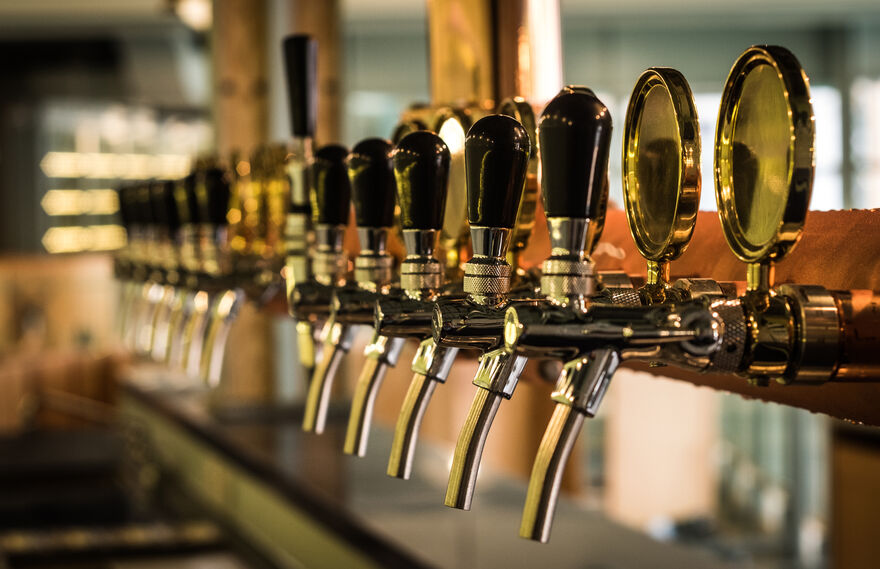These are unprecedented and challenging times for the owners and operators of licensed premises. Howes Percival have been advising clients in the leisure and tourism industry for over 25 years and continue to stand by our clients, contacts and friends in the industry.
Planning and licensing law specialist, Jamie Childs, looks at the latest implications of the Government’s response to the COVID-19 virus on the industry.
Given the constantly evolving circumstances readers should note that this article was written on 23 March 2020 and reviewed on 25 March 2020 before the Prime Minister’s daily briefing on that date.
The Health Protection (Coronavirus, Business Closure) (England) Regulations 2020 (“Regulations”)
The Regulations came into force at 2pm on 21 March 2020 and apply to England only. The effect of the Regulations can be summarised as follows:
- Restaurants (including restaurants and dining rooms in hotels or private clubs), cafes (including workplace canteens but not including those in a hospital, care homes, school, prison, military establishment or service providing food and drink to the homeless), bars (including bars in hotels or members clubs) and public houses must close and cease selling food or drink for consumption on the premises from 2pm on 21 March 2020.
- Room service in hotels is not affected by the above.
- Those responsible for carrying on business as a cinema, theatre, nightclub, bingo hall, concert hall, museum, gallery, casino, betting shop, spa, massage parlour, indoor skating rink or indoor fitness studio, gym, swimming pool or other indoor leisure centre must cease carrying on those businesses from 2pm on 21 March 2020.
- These measures will apply until the Secretary of State “considers that the restrictions set out in this regulation are no longer necessary to prevent, protect against, control or provide a public health response to the incidence or spread of infection in England with the coronavirus”.
- Under the Regulations, the Secretary of State is under a duty to review the need for these restrictions every 28 days.
- Those who contravene the restrictions in the Regulations commit an offence punishable by a fine and the Regulations also include provision for officers of a corporate entity to be guilty of an offence where that corporate entity has contravened the Regulations.
Businesses affected are advised to review the latest support measures announced by the Government here.
Relaxation of planning rules
Alongside the restrictions above, the Communities Secretary has announced the relaxation of certain planning rules, which those businesses listed at the first bullet point in the section above may wish to take advantage of.
At 10am on 24 March 2020 the Government introduced permitted development rights which (subject to conditions) allow restaurants and cafes, drinking establishments and drinking establishments with expanded food provision to temporarily provide takeaway food until 23 March 2021.
Things to think about if you are changing your business practices
If it remains practicable for affected businesses to carry on as a hot-food take away in light of current and evolving Government guidance there are a number of other matters which are worthwhile considering:
- Premises licences should be reviewed to consider if there are any conditions which would affect this operation.
- If the sale of alcohol with hot-food takeaways (or deliveries) is envisaged then care should be taken to see whether premises licences permit “off-sales” of alcohol.
- Indeed, if the sale of hot food or drink is intended to carry on between the hours of 11pm and 5am then an operator should confirm that their premises licence authorises late night refreshment. This does not apply to hot drink supplied by a vending machine.
- Operators should also confirm that there is nothing in their lease arrangements that prevents such business activity or there are no similar restrictive property covenants on their premises.
Is your premises licence at risk of lapsing?
A premises licence is undoubtedly an asset which can be of significant value to operators and the properties which they own and/or occupy.
At this challenging time there is the increased possibility of premises licence holders unfortunately becoming insolvent. Under the Licensing Act 2003 a premises licence will automatically lapse on such insolvency and will be lost completely unless an application to transfer that licence or an interim authority notice is given within 28 days of that insolvency.
One way premises licence holders may want to protect their premises licences now is to transfer these to another eligible holder who may not be at risk of such insolvency.
Landlords of licenced premises who also benefit from the value of the premises licences that their tenants may hold are advised to liaise closely with their tenants at this time to avoid a premises licence being lost and to consider facilitating any temporary alternative business operation their tenants may propose.
If you wish to discuss the implications of the COVID-19 virus and the Government’s response to it on the industry please contact one of our specialist Leisure & Tourism sector team.
The information on this site about legal matters is provided as a general guide only. Although we try to ensure that all of the information on this site is accurate and up to date, this cannot be guaranteed. The information on this site should not be relied upon or construed as constituting legal advice and Howes Percival LLP disclaims liability in relation to its use. You should seek appropriate legal advice before taking or refraining from taking any action.

